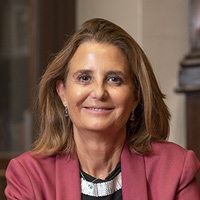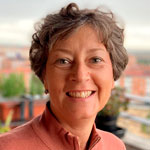Master´s Degree in Tourism Companies and Destinations + Own Degree of Expert Nebrija in Innovation and Tourist Intelligence
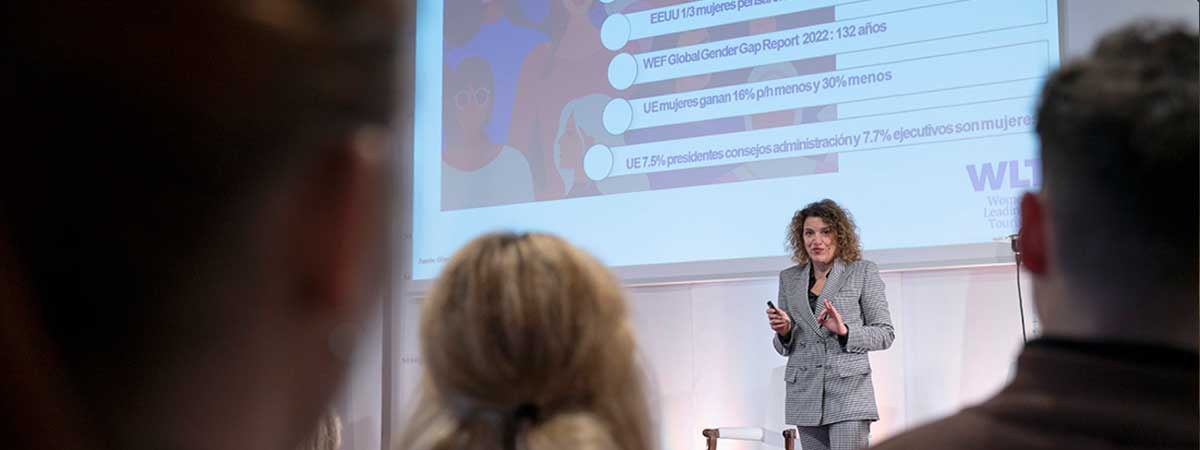
Official program with two learning itineraries: professional and research
The Master's Degree in Tourism Companies and Destinations, with the Own Degree of Expert Nebrija in Innovation and Tourist Intelligence, encourages students in entrepreneurship and business innovation in this sector, which is the engine of the Spanish economy. The program complements the Bachelor's Degree in Tourism, specializing the student in business management, by acquiring the knowledge and skills necessary to develop a tourism product or company, adapting it to new environments, digital opportunities and current global consumer needs.
The tourism sector is changing, it is segmented but at the same time globalized and technological, so it requires expert professionals with a highly qualified profile, who can respond immediately to these new challenges. The curriculum includes two itineraries: one in research, for those who want to continue their studies with the PhD in Tourism, which is also taught at Nebrija University; or the professional itinerary, for those who seek to start a business in the sector.
One of the fundamental pillars of Spanish economy is tourism. The importance of the sector is reflected in its contribution to the GDP. Companies and institutions dedicated to tourism are always in constant evolution, marked by technological advances. Therefore, they demand more and more specialized professionals with a series of skills and abilities up to date with the latest trends.
Read moreThe Master's Degree in Tourism Companies and Destinations Management responds to this business need. The curriculum is designed with an international perspective, promoting the employability of its graduates in all parts of world. In addition, the program has a large technological presence in its contents, preparing students to respond to the future challenges faced by tourism companies and institutions.
The program has two differentiated itineraries to train its students according to the profile that most interests them: research or professional. The research itinerary, in addition to granting access to the Doctorate in Tourism, gives the student the competences, tools and skills necessary to successfully carry out the research task.
For its part, the professional itinerary is focused on students with a more international and business profile. Encouraging the employability of its graduates is one of the University's maxims, an objective that more than meets this program aimed at entrepreneurship and technological innovation.
Nebrija University organizes several conferences and workshops on the tourism sector during the academic year, with visits and presentations by the best professionals in the sector. In addition, students will make technical visits to hotels, agencies and tourist destinations, where they will learn first-hand about the professional activity.
Read less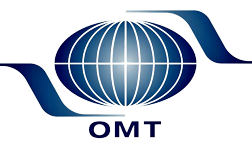
The UNWTO Affiliate Members platform is an interactive tourism platform at the international level that offers the opportunity to create networks with common objectives and to be a space for the creation of new tourism products for the institutions and States participating in the program.
The Master's in Tourism Destinations and Companies program has the support of an Advisory Council made up of relevant institutions and organizations in the tourism industry. The collaboration of the Advisory Council in research projects, specific academic programs, advice on programs, among others, fosters business and institutional synergies with the academic field.






Student profile: All applicants who meet the requirements imposed by current legislation, with an Associate's/Bachelor's or Undergraduate degree, who are interested in acquiring specialized training in the management of tourism companies and destinations or in research in the tourism sector, may access the Master's Program in Tourism Companies and Destination.
Therefore, graduates with an Associate's, Bachelor's or Undergraduate degree in the field of economics, business, specifically those from the Bachelor's Degree in Tourism, Economics, Business Administration and Management, and degrees with competences related to those listed, may access the Master's Degree in Tourism Companies and Destinations.
The student can study either in Spanish or English, having to choose one of the two languages to follow the curriculum.
Students who access the University to pursue their studies in the distance learning modality will have the same mechanisms for prior information as those who do so in the class attendance modality (website and brochures, among others). The Department of Promotion and Admissions is responsible for providing personalized academic information to those who request it, following up and facilitating collaboration in the different phases of prior information and access to the University.
Students taking this modality require a more complete information process, as students must know precisely what is the teaching methodology used, the teaching-learning method, the available media, documentation, resources, software, etc. However, detailed information on the methodology and activities to be carried out throughout the curriculum is included for each distance learning degree on the University's website.
For this, during the degree's starting week, through the virtual campus, the student will be provided a technical guide with information related to resources, the use of the campus, and general information on the degree. An academic guide will also be provided for each of the subjects.
Official Degree:Master´s Degree in Tourism Companies and Destinations
Center responsible:School of Economics and Business
Branch of knowledge: Social and Legal Sciences
Available places: 140
Total Credits:60 credits.
Minimum of 12 ECTS credits and maximum of 60 ECTS credits per enrollment and academic period.
Academic year in which it was implemented: 2021/2022
Duration: 9 months. From October to July
Type of Education: Classroom attendance / Online
Academic Regulations: General student’s regulations. Credit transfer and recognition. Regulation of student participation. Common procedures for carrying out the Final Research Project
University Services: [+info]
Technical visits to the best hotels, agencies and tourist destinations
Curriculum
All our degrees and curricula have been prepared in accordance with the new guidelines set by current legislation, having already been verified by the National Agency for Quality Assessment.
The student must take 60 credits
First Semester 30 ECTS
Common subjects- 6 ECTS | Tourism market trends
- 6 ECTS | Social responsibility in tourism
- 6 ECTS | Tourism policies and development models
Research Itinerary- 6 ECTS | Statistical analysis techniques in tourism
- 6 ECTS | Advanced diagnosis of tourism impacts
Professional Itinerary- 6 ECTS | Financial management and economic structure of the company
- 6 ECTS | Strategy design in the tourism company
Second Semester 30 ECTS
Common subjects- 6 ECTS | Marketing 3.0
- 6 ECTS | Design of technological projects and Big Data in tourism
- 6 ECTS | Final Research Project
Research Itinerary- 6 ECTS | Tourism research methodology
- 6 ECTS | Introduction to the FRP with a research perspective
Professional Itinerary- 6 ECTS | Projection of business models
- 6 ECTS | Professional internships
Additional Expert Subjects12 ECTS
Nebrija Expert in Innovation and Tourist Intelligence- 4 ECTS | Innovation management in tourism
- 4 ECTS | Digital transformation
- 4 ECTS | Smart Tourist Destinations
Professors
| Profesores Professors | Porcentaje de Doctores Percentage of Doctors |
| 29 | 72,41% |
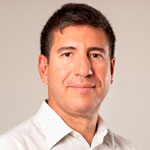 Francisco Javier Navarro Meneses
Director del Máster en Empresas y Destinos Turísticos
Director of the Master´s Degree in Tourism Companies and Destinations
Doctor en Economía y Gestión Empresarial por la Universidad de Alcalá (2016). Previamente obtuvo su Máster MBA Ejecutivo en el Instituto de Empresa de Madrid, en la especialidad de operaciones y producción. Su trabajo de doctorado se concentró en la aplicación de las bases del paradigma de la complejidad a la teoría de la firma con la finalidad de formular unas nuevas bases teóricas y metodologías que explican el comportamiento de la firma. Actualmente es profesor en el Departamento de Turismo de la Universidad Nebrija, donde dirige el programa combinado MBA (máster oficial). Anteriormente a su incorporación al ámbito universitario ha desarrollado su carrera profesional como consultor internacional de negocios, sector en el que cuenta con una experiencia de veinte años como consultor especializado en la transformación estratégica de las Administraciones Públicas, y ha ocupado diversos puestos de responsabilidad. Ha sido fundador y CEO de diversas empresas en el sector de la ingeniería, transporte, comercio electrónico y consultoría de negocios.
Francisco Javier Navarro Meneses
Director del Máster en Empresas y Destinos Turísticos
Director of the Master´s Degree in Tourism Companies and Destinations
Doctor en Economía y Gestión Empresarial por la Universidad de Alcalá (2016). Previamente obtuvo su Máster MBA Ejecutivo en el Instituto de Empresa de Madrid, en la especialidad de operaciones y producción. Su trabajo de doctorado se concentró en la aplicación de las bases del paradigma de la complejidad a la teoría de la firma con la finalidad de formular unas nuevas bases teóricas y metodologías que explican el comportamiento de la firma. Actualmente es profesor en el Departamento de Turismo de la Universidad Nebrija, donde dirige el programa combinado MBA (máster oficial). Anteriormente a su incorporación al ámbito universitario ha desarrollado su carrera profesional como consultor internacional de negocios, sector en el que cuenta con una experiencia de veinte años como consultor especializado en la transformación estratégica de las Administraciones Públicas, y ha ocupado diversos puestos de responsabilidad. Ha sido fundador y CEO de diversas empresas en el sector de la ingeniería, transporte, comercio electrónico y consultoría de negocios.
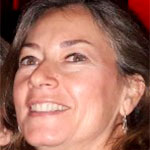 Isabel López Briones
Profesora
Professor
Licenciada en Geografía (Universidad Autónoma de Madrid), Diplomada en Formación de Profesorado (Universidad Autónoma de Madrid), y Senior Executive por ESADE Business School, ha desarrollado su carrera profesional dentro del sector turístico, en puestos de responsabilidad de diferentes áreas, como marketing, comunicación, dirección de proyectos o desarrollo de negocio, para empresas privadas y entidades públicas. Entre las primeras ha trabajado, por ejemplo, en distribución turística (Travelport-Galileo), alojamiento (BeMate), o consultoría (Grupo Expertus). Dentro del sector público comenzó su trayectoria trabajando en promoción turística (Turismo Madrid), culminando esa etapa como Gerente del Cluster de Turismo de la Comunidad de Madrid. Conoce también el mundo del emprendimiento, habiendo formado parte del equipo de Sherpandipity. Actualmente combina su trabajo como profesional con la labor docente, impartiendo clases en la Universidad Nebrija.
Manuel S López Domínguez
Isabel López Briones
Profesora
Professor
Licenciada en Geografía (Universidad Autónoma de Madrid), Diplomada en Formación de Profesorado (Universidad Autónoma de Madrid), y Senior Executive por ESADE Business School, ha desarrollado su carrera profesional dentro del sector turístico, en puestos de responsabilidad de diferentes áreas, como marketing, comunicación, dirección de proyectos o desarrollo de negocio, para empresas privadas y entidades públicas. Entre las primeras ha trabajado, por ejemplo, en distribución turística (Travelport-Galileo), alojamiento (BeMate), o consultoría (Grupo Expertus). Dentro del sector público comenzó su trayectoria trabajando en promoción turística (Turismo Madrid), culminando esa etapa como Gerente del Cluster de Turismo de la Comunidad de Madrid. Conoce también el mundo del emprendimiento, habiendo formado parte del equipo de Sherpandipity. Actualmente combina su trabajo como profesional con la labor docente, impartiendo clases en la Universidad Nebrija.
Manuel S López Domínguez
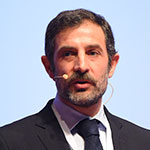 David Mora Gómez
Profesor
Professor
Cuenta con una gran experiencia en la elaboración de proyectos de planificación y gestión turística, que incorporan un apartado específico de promoción y comercialización. Asimismo, ha colaborado en la creación de nuevos clubes de producto turístico, en destinos gastronómicos, de naturaleza, costa, etc. Toda su formación y desarrollo profesional se han centrado en la actividad turística, habiendo pasado por diferentes sectores como la promoción de destinos, hotelería, formación y consultoría. Ha sido profesor y director de programas relacionados con el turismo y la hostelería en diferentes Universidades, como el CETT, Universidad de Nebrija o la Universidad Europea. En estos momentos es coordinador del Master de Turismo Gastronómico del Basque Culinary Center. Además de haber estudiado turismo en la Universidad de Deusto, y Universidad de Nebrija, tiene un master en gestión turística por la Universidad de Bournemouth y actualmente es doctorando en turismo por la Universidad Rey Juan Carlos.
David Mora Gómez
Profesor
Professor
Cuenta con una gran experiencia en la elaboración de proyectos de planificación y gestión turística, que incorporan un apartado específico de promoción y comercialización. Asimismo, ha colaborado en la creación de nuevos clubes de producto turístico, en destinos gastronómicos, de naturaleza, costa, etc. Toda su formación y desarrollo profesional se han centrado en la actividad turística, habiendo pasado por diferentes sectores como la promoción de destinos, hotelería, formación y consultoría. Ha sido profesor y director de programas relacionados con el turismo y la hostelería en diferentes Universidades, como el CETT, Universidad de Nebrija o la Universidad Europea. En estos momentos es coordinador del Master de Turismo Gastronómico del Basque Culinary Center. Además de haber estudiado turismo en la Universidad de Deusto, y Universidad de Nebrija, tiene un master en gestión turística por la Universidad de Bournemouth y actualmente es doctorando en turismo por la Universidad Rey Juan Carlos.
 Antonio Alcocer Fernández-Pinilla
Profesor
Professor
Profesor Ingeniero Superior Industrial, por la Universidad Pontifica de Comillas, ICAI. MSc. in Management, por la Universidad de Birmingham. Master Executive en Finanzas por el ICADE, European Financial Advisor (EFA), Sony Six Sigma Green Belt Certificate, Project Management Professional (PMP) certificado. Doctor en Economía y Finanzas por la UE. Profesional con más de trece años de experiencia profesional internacional a nivel de dirección, en las áreas de consultoría, estrategia, desarrollo de negocio, marketing, finanzas y operaciones en entornos multinacionales (Unión Europea, Grupo Laureate International, Sony, PSA Citroën Peugeot, Agrolimen y MLP Private Finance). Actualmente, es socio consultor de negocio en Alcocer&Co. Profesor universitario en varias universidades, en los programas de máster y grado, en el área de Economía de la Empresa y Finanzas, y Presidente de la asociación sin ánimo de lucro Minds4Change, focalizada en educación y emprendimiento.
Antonio Alcocer Fernández-Pinilla
Profesor
Professor
Profesor Ingeniero Superior Industrial, por la Universidad Pontifica de Comillas, ICAI. MSc. in Management, por la Universidad de Birmingham. Master Executive en Finanzas por el ICADE, European Financial Advisor (EFA), Sony Six Sigma Green Belt Certificate, Project Management Professional (PMP) certificado. Doctor en Economía y Finanzas por la UE. Profesional con más de trece años de experiencia profesional internacional a nivel de dirección, en las áreas de consultoría, estrategia, desarrollo de negocio, marketing, finanzas y operaciones en entornos multinacionales (Unión Europea, Grupo Laureate International, Sony, PSA Citroën Peugeot, Agrolimen y MLP Private Finance). Actualmente, es socio consultor de negocio en Alcocer&Co. Profesor universitario en varias universidades, en los programas de máster y grado, en el área de Economía de la Empresa y Finanzas, y Presidente de la asociación sin ánimo de lucro Minds4Change, focalizada en educación y emprendimiento.
 Mónica Figuerola Martín
Profesora
Professor
Licenciada en Derecho (Universidad Autónoma de Madrid), Máster en Marketing, Máster en Dirección Hotelera y Doctora Cum Laude en Turismo por la Universidad Nebrija.
Directora General de Turismo en el Gobierno de La Rioja durante 12 años y Directora General de Spaincares durante 2 años (Clúster Español de Turismo de Salud).
Como experta internacional en Turismo Médico, en la responsable de desarrollo de negocio en Quironsalud desde 2018.
En el sector privado ha ocupado diversos puestos directivos en el área de marketing corporativo en diferentes Cadenas Hoteleras españolas (Barceló Hotels & Resorts, Green Hotels, etc.).
Consultora en estrategia para el sector público en PricewaterhouseCoopers y responsable para España de la OTA China CTRIP.
En lo que respecta al área de Certificación, desde 2016, Presidenta del "ISO WG2 Health Tourism Services".
Profesora de la Universidad Nebrija y colaboradora de otras instituciones académicas públicas y privadas.
Mónica Figuerola Martín
Profesora
Professor
Licenciada en Derecho (Universidad Autónoma de Madrid), Máster en Marketing, Máster en Dirección Hotelera y Doctora Cum Laude en Turismo por la Universidad Nebrija.
Directora General de Turismo en el Gobierno de La Rioja durante 12 años y Directora General de Spaincares durante 2 años (Clúster Español de Turismo de Salud).
Como experta internacional en Turismo Médico, en la responsable de desarrollo de negocio en Quironsalud desde 2018.
En el sector privado ha ocupado diversos puestos directivos en el área de marketing corporativo en diferentes Cadenas Hoteleras españolas (Barceló Hotels & Resorts, Green Hotels, etc.).
Consultora en estrategia para el sector público en PricewaterhouseCoopers y responsable para España de la OTA China CTRIP.
En lo que respecta al área de Certificación, desde 2016, Presidenta del "ISO WG2 Health Tourism Services".
Profesora de la Universidad Nebrija y colaboradora de otras instituciones académicas públicas y privadas.
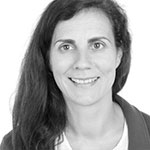 Eva Hurtado Rodrigo
Profesora
Professor
Subdirectora del Área de Estudios e Investigaciones de Exceltur. Eva ha trabajado en los últimos años en el mundo del turismo en el ámbito de la transformación del modelo turístico con foco en el uso de tecnología y la información, para optimizar el conocimiento, inteligencia y toma de decisiones tácticas y estratégicas entre los agentes de la cadena de valor del sector.
En su etapa profesional anterior, trabajó como Senior Research Analyst en Amadeus IT llevando a cabo labores de investigación de mercado, previsiones, diseño de escenarios y elaboración de información para la toma de decisiones del equipo directivo, tras su paso por la consultoría de análisis económico en el ámbito nacional, regional y territorial en el Grupo Analistas.
En los últimos años en Exceltur ha participado en numerosos proyectos entre los que destaca: “DigiTUR. Identificación de temas críticos de la gestión de destinos y buenas prácticas y soluciones tecnológicas para su gestión”, “Monitor de Competitividad Turística de las CCAAs (MoniTUR), ciudades españolas (UrbanTUR) y destinos vacacionales (SolyTUR)”, “Informe Perspectivas Turísticas”, “Estudios de Impacto Económico a nivel regional (IMPACTUR)” “Barómetro de Rentabilidad Turística de los Destinos Españoles”, “Lookinsidetravel.Travel” e “Impactos territoriales socioeconómicos y sobre el empleo de los diversos modelos turísticos del litoral mediterráneo, Baleares y Canarias”. Asidua participante en congresos y reuniones técnicas sobre turismo, tecnología, big data, estadísticas y metodologías de análisis aplicadas al turismo. Profesora asociada en estudios de postgrado relacionados con la tecnología e inteligencia turística.
Licenciada en CC. Económicas y Empresariales por la Universidad Autónoma de Madrid en la especialidad de Métodos Cuantitativos para la Empresa. Cursos de doctorado en Economía Aplicada en la Universidad Autónoma de Madrid. Formación de post grado en técnicas econométricas (time-series, panel data, inferencia causal) inteligencia competitiva, Big Data, Business Analytics y Machine Learning.
Eva Hurtado Rodrigo
Profesora
Professor
Subdirectora del Área de Estudios e Investigaciones de Exceltur. Eva ha trabajado en los últimos años en el mundo del turismo en el ámbito de la transformación del modelo turístico con foco en el uso de tecnología y la información, para optimizar el conocimiento, inteligencia y toma de decisiones tácticas y estratégicas entre los agentes de la cadena de valor del sector.
En su etapa profesional anterior, trabajó como Senior Research Analyst en Amadeus IT llevando a cabo labores de investigación de mercado, previsiones, diseño de escenarios y elaboración de información para la toma de decisiones del equipo directivo, tras su paso por la consultoría de análisis económico en el ámbito nacional, regional y territorial en el Grupo Analistas.
En los últimos años en Exceltur ha participado en numerosos proyectos entre los que destaca: “DigiTUR. Identificación de temas críticos de la gestión de destinos y buenas prácticas y soluciones tecnológicas para su gestión”, “Monitor de Competitividad Turística de las CCAAs (MoniTUR), ciudades españolas (UrbanTUR) y destinos vacacionales (SolyTUR)”, “Informe Perspectivas Turísticas”, “Estudios de Impacto Económico a nivel regional (IMPACTUR)” “Barómetro de Rentabilidad Turística de los Destinos Españoles”, “Lookinsidetravel.Travel” e “Impactos territoriales socioeconómicos y sobre el empleo de los diversos modelos turísticos del litoral mediterráneo, Baleares y Canarias”. Asidua participante en congresos y reuniones técnicas sobre turismo, tecnología, big data, estadísticas y metodologías de análisis aplicadas al turismo. Profesora asociada en estudios de postgrado relacionados con la tecnología e inteligencia turística.
Licenciada en CC. Económicas y Empresariales por la Universidad Autónoma de Madrid en la especialidad de Métodos Cuantitativos para la Empresa. Cursos de doctorado en Economía Aplicada en la Universidad Autónoma de Madrid. Formación de post grado en técnicas econométricas (time-series, panel data, inferencia causal) inteligencia competitiva, Big Data, Business Analytics y Machine Learning.
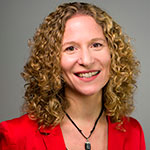 Daniela Thiel Ellul
Profesora UNNE
Professor UNNE
Doctora en el Programa Oficial de Posgrado en Turismo y Máster en Dirección y Planificación del Turismo (Universidad de Málaga). Licenciada en Administración y Gestión Empresarial (Universidad Nacional de San Martín -UNSAM, Argentina). Ha trabajado como Coordinadora e Investigadora del Centro de Investigación y Desarrollo del Turismo de la UNSAM desde el año 2005, siendo profesora en el grado y posgrado de turismo. Tiene antecedentes como directora e integrante de diversos proyectos de investigación financiados en Argentina y España. Cuenta con publicaciones y ponencias presentadas en congresos, seminarios y jornadas sobre turismo, en Argentina, España, Chile, Brasil, Colombia, México, Uruguay y Costa Rica. En la actualidad desempeña las funciones de Coordinadora Académica del Grado en Turismo de la Universidad Antonio de Nebrija impartiendo docencia en programas de grado y posgrado en el área de Turismo.
Daniela Thiel Ellul
Profesora UNNE
Professor UNNE
Doctora en el Programa Oficial de Posgrado en Turismo y Máster en Dirección y Planificación del Turismo (Universidad de Málaga). Licenciada en Administración y Gestión Empresarial (Universidad Nacional de San Martín -UNSAM, Argentina). Ha trabajado como Coordinadora e Investigadora del Centro de Investigación y Desarrollo del Turismo de la UNSAM desde el año 2005, siendo profesora en el grado y posgrado de turismo. Tiene antecedentes como directora e integrante de diversos proyectos de investigación financiados en Argentina y España. Cuenta con publicaciones y ponencias presentadas en congresos, seminarios y jornadas sobre turismo, en Argentina, España, Chile, Brasil, Colombia, México, Uruguay y Costa Rica. En la actualidad desempeña las funciones de Coordinadora Académica del Grado en Turismo de la Universidad Antonio de Nebrija impartiendo docencia en programas de grado y posgrado en el área de Turismo.
 Francisco Femenia-Serra
Profesor UNNE
Professor UNNE
Doctor en Turismo por la Universidad de Alicante (2019), Máster en Dirección y Planificación del Turismo (2016) y Graduado en Geografía y Ordenación del Territorio (2014). Actualmente es profesor del Dpto. de Turismo de la Universidad Nebrija y miembro del grupo de investigación en Inteligencia Turística e Innovación (Smarttour-INN). Ha sido autor de varios artículos publicados en revistas académicas de alto impacto y ha participado numerosos congresos nacionales e internacionales. También ha sido investigador visitante de las Universidades de Surrey (Reino Unido) y de la Universidad de Ciencias Aplicadas de Salzburgo (Austria). Cuenta con la acreditación de la ANECA para la figura de Contratado Doctor y es editor asociado de la revista Investigaciones Turísticas (indexada en Scopus). Su investigación se centra en los destinos turísticos inteligentes, la planificación, gestión y marketing de destinos turísticos, así como en el comportamiento y experiencias de los turistas en relación al uso de nuevas tecnologías en el contexto turístico.
Francisco Femenia-Serra
Profesor UNNE
Professor UNNE
Doctor en Turismo por la Universidad de Alicante (2019), Máster en Dirección y Planificación del Turismo (2016) y Graduado en Geografía y Ordenación del Territorio (2014). Actualmente es profesor del Dpto. de Turismo de la Universidad Nebrija y miembro del grupo de investigación en Inteligencia Turística e Innovación (Smarttour-INN). Ha sido autor de varios artículos publicados en revistas académicas de alto impacto y ha participado numerosos congresos nacionales e internacionales. También ha sido investigador visitante de las Universidades de Surrey (Reino Unido) y de la Universidad de Ciencias Aplicadas de Salzburgo (Austria). Cuenta con la acreditación de la ANECA para la figura de Contratado Doctor y es editor asociado de la revista Investigaciones Turísticas (indexada en Scopus). Su investigación se centra en los destinos turísticos inteligentes, la planificación, gestión y marketing de destinos turísticos, así como en el comportamiento y experiencias de los turistas en relación al uso de nuevas tecnologías en el contexto turístico.
 David Cohen Wahnón
Profesor
Professor
David Cohén es Doctor Ingeniero Agrónomo por la Universidad Politécnica de Madrid y Diplomado en Alta Dirección de Empresas (PADE) por el IESE (Universidad de Navarra)
Tiene una vasta experiencia profesional no docente, siempre en puestos de Alta Dirección, en creación, organización, dirección, reflotamiento y reestructuración de empresas nacionales e internacionales en diversos sectores: agroalimentario (bebidas, transferencia de tecnología, cárnico, distribución mayorista), multimedia (información especializada, agencia de noticias), consultoría estratégica
Profesor de la Universidad Antonio de Nebrija (Facultad de Economía y Empresa), en grado, postgrado y executive education (presencial y online), en: Estrategia Empresarial, Dirección Estratégica, Proyecto de Internacionalización Empresarial, Estrategia Competitiva y Gestión del Cambio, Análisis del Entorno Internacional y definición de la Estrategia Competitiva
Ponente en diferentes Congresos y Seminarios relacionados con su área de actividad docente y empresarial
David Cohen Wahnón
Profesor
Professor
David Cohén es Doctor Ingeniero Agrónomo por la Universidad Politécnica de Madrid y Diplomado en Alta Dirección de Empresas (PADE) por el IESE (Universidad de Navarra)
Tiene una vasta experiencia profesional no docente, siempre en puestos de Alta Dirección, en creación, organización, dirección, reflotamiento y reestructuración de empresas nacionales e internacionales en diversos sectores: agroalimentario (bebidas, transferencia de tecnología, cárnico, distribución mayorista), multimedia (información especializada, agencia de noticias), consultoría estratégica
Profesor de la Universidad Antonio de Nebrija (Facultad de Economía y Empresa), en grado, postgrado y executive education (presencial y online), en: Estrategia Empresarial, Dirección Estratégica, Proyecto de Internacionalización Empresarial, Estrategia Competitiva y Gestión del Cambio, Análisis del Entorno Internacional y definición de la Estrategia Competitiva
Ponente en diferentes Congresos y Seminarios relacionados con su área de actividad docente y empresarial
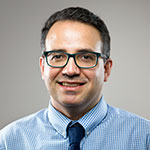 Jorge Hernando Cuñado
Profesor UNNE
Professor UNNE
Coordinador Internacional de la Facultad de Economía y Empresa. Profesor de Economía y Empresa.
Doctor en Fundamentos de Economía. Universidad Complutense.
Programa Superior en Dirección de Ventas. ESIC
Certificate of Proficiency in English. Cambridge University.
Máster Universitario en Formación del Profesorado de Secundaria UNED.
Experiencia laboral como Consultor de Fondos Europeos en el Ministerio de Economía.
Experiencia Internacional: Accenture Ireland, Citigroup Ireland.
Experiencia docente en las Universidades de París-Sorbona, Coímbra, Portsmouth y Münster Applied Sciences dentro del programa Erasmus Plus.
Autor de diversos artículos científicos y de prensa.
Jorge Hernando Cuñado
Profesor UNNE
Professor UNNE
Coordinador Internacional de la Facultad de Economía y Empresa. Profesor de Economía y Empresa.
Doctor en Fundamentos de Economía. Universidad Complutense.
Programa Superior en Dirección de Ventas. ESIC
Certificate of Proficiency in English. Cambridge University.
Máster Universitario en Formación del Profesorado de Secundaria UNED.
Experiencia laboral como Consultor de Fondos Europeos en el Ministerio de Economía.
Experiencia Internacional: Accenture Ireland, Citigroup Ireland.
Experiencia docente en las Universidades de París-Sorbona, Coímbra, Portsmouth y Münster Applied Sciences dentro del programa Erasmus Plus.
Autor de diversos artículos científicos y de prensa.
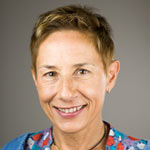 Ivana Ambrosio Racic
Profesora UNNE
Professor UNNE
Doctora en Ciencias Empresariales por la Universidad Nebrija. Máster Universitario en Creación y Dirección de Empresas por la Universidad Nebrija. Licenciada en Ciencias Económicas y Empresariales por la Universidad Complutense de Madrid, rama de Economía de la Empresa, especialidad en Contabilidad y Auditoría. También Diplomada por la Universidad Complutense de Madrid en Ciencias Empresariales, especialidad en Contabilidad. Cursos de Doctorado en la UCM en el programa de Contabilidad y Auditoría. Profesora del área de Contabilidad de la Universidad Antonio de Nebrija. Ha sido profesora asociada en IE University y en la Universidad Carlos III de Madrid. También profesora y colaboradora en la CECO-ICEX, Nebrija Business School, Fundación COSO, AEDE Business School.
Ivana Ambrosio Racic
Profesora UNNE
Professor UNNE
Doctora en Ciencias Empresariales por la Universidad Nebrija. Máster Universitario en Creación y Dirección de Empresas por la Universidad Nebrija. Licenciada en Ciencias Económicas y Empresariales por la Universidad Complutense de Madrid, rama de Economía de la Empresa, especialidad en Contabilidad y Auditoría. También Diplomada por la Universidad Complutense de Madrid en Ciencias Empresariales, especialidad en Contabilidad. Cursos de Doctorado en la UCM en el programa de Contabilidad y Auditoría. Profesora del área de Contabilidad de la Universidad Antonio de Nebrija. Ha sido profesora asociada en IE University y en la Universidad Carlos III de Madrid. También profesora y colaboradora en la CECO-ICEX, Nebrija Business School, Fundación COSO, AEDE Business School.
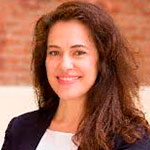 Obdulia Monteserín
Profesora
Professor
Doctora en Geografía por la Universidad Complutense de Madrid (2007). Ha desarrollado actividad profesional como consultora para Administraciones Públicas y consultoría turística. Ha realizado su tesis doctoral en el ámbito del desarrollo territorial y el turismo, estudiando los Planes de Dinamización y de Excelencia Turística como instrumentos de planificación turística y puesta en valor del territorio. Ha desarrollado actividad docente en la Universidad Complutense de Madrid (2007-2015) y en la Universidad Jaume I, en donde realiza actividades profesionales e investigadoras en materia de planificación y ordenación del turismo. Ha participado en proyectos internacionales de cooperación financiados por la Unión Europea y proyectos nacionales en el marco de convocatorias españolas de I+D+i. Sus publicaciones tratan sobre las transformaciones producidas por el turismo en el ámbito territorial, la puesta en valor de recursos, metodologías de investigación y prácticas económicas alternativas.
Obdulia Monteserín
Profesora
Professor
Doctora en Geografía por la Universidad Complutense de Madrid (2007). Ha desarrollado actividad profesional como consultora para Administraciones Públicas y consultoría turística. Ha realizado su tesis doctoral en el ámbito del desarrollo territorial y el turismo, estudiando los Planes de Dinamización y de Excelencia Turística como instrumentos de planificación turística y puesta en valor del territorio. Ha desarrollado actividad docente en la Universidad Complutense de Madrid (2007-2015) y en la Universidad Jaume I, en donde realiza actividades profesionales e investigadoras en materia de planificación y ordenación del turismo. Ha participado en proyectos internacionales de cooperación financiados por la Unión Europea y proyectos nacionales en el marco de convocatorias españolas de I+D+i. Sus publicaciones tratan sobre las transformaciones producidas por el turismo en el ámbito territorial, la puesta en valor de recursos, metodologías de investigación y prácticas económicas alternativas.
 Elena Zubiaurre Ibáñez
Profesora
Professor
Doctora en Historia por la Universidad Complutense de Madrid y la Universidad Autónoma de Madrid. Máster en Historia y Ciencias de la Antigüedad (UCM-UAM) y Máster en Formación de Profesorado de ESO y Bachillerato (UAM). Licenciada en Historia por la UCM. Título de Alta Especialización en Gestión Patrimonial del CSIC. Ha ejercido la docencia en la UCM y en la Universidad Nebrija en diversas asignaturas de Grado y Postgrado. Durante su formación ha disfrutado de distintas becas, entre ellas una Beca de Formación de Profesorado Universitario (FPU). Cuenta con experiencia como investigadora del CSIC, donde participa en distintos proyectos arqueológicos vinculados con el patrimonio y su puesta en valor, tanto en España como en otros países europeos. Realizó una estancia de investigación en el Institute of Archaeology de la Universidad de Oxford. Cuenta con varias aportaciones a congresos y publicaciones, orientadas tanto a la arqueología y la historia antigua, como a la didáctica del patrimonio. Las más recientes en Presses universitaires de Franche-Comté, la Editorial Dykinson y Emerita.
Elena Zubiaurre Ibáñez
Profesora
Professor
Doctora en Historia por la Universidad Complutense de Madrid y la Universidad Autónoma de Madrid. Máster en Historia y Ciencias de la Antigüedad (UCM-UAM) y Máster en Formación de Profesorado de ESO y Bachillerato (UAM). Licenciada en Historia por la UCM. Título de Alta Especialización en Gestión Patrimonial del CSIC. Ha ejercido la docencia en la UCM y en la Universidad Nebrija en diversas asignaturas de Grado y Postgrado. Durante su formación ha disfrutado de distintas becas, entre ellas una Beca de Formación de Profesorado Universitario (FPU). Cuenta con experiencia como investigadora del CSIC, donde participa en distintos proyectos arqueológicos vinculados con el patrimonio y su puesta en valor, tanto en España como en otros países europeos. Realizó una estancia de investigación en el Institute of Archaeology de la Universidad de Oxford. Cuenta con varias aportaciones a congresos y publicaciones, orientadas tanto a la arqueología y la historia antigua, como a la didáctica del patrimonio. Las más recientes en Presses universitaires de Franche-Comté, la Editorial Dykinson y Emerita.
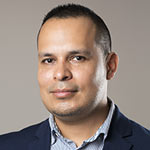 Juan Carlos Campaña Naranja
Profesor UNNE
Professor UNNE
Doctor en Economía (calificación: Sobresaliente Cum Laude y mención Doctor Internacional) por la Universidad de Zaragoza desde Septiembre de 2018 y acreditado por la ANECA como Profesor Ayudante Doctor en Ciencias Sociales y Jurídicas desde Febrero de 2019. En la actualidad, es Investigador - Profesor en el Departamento de Administración de Empresas de la Universidad Nebrija en Madrid. Anteriormente, fue parte de la Universidad de Zaragoza (sede Zaragoza) como Profesor Asociado (Noviembre 2018 – Agosto 2019) y como Investigador Predoctoral en Formación (Septiembre de 2015 a Septiembre de 2018), desempeñando sus labores en el Departamento de Análisis Económico de la Facultad de Economía y Empresa de dicha Universidad.
Su principal área de investigación es la Microeconomía y, en particular la Economía familiar y de la Población, con intereses específicos en las diferencias de género en los Usos del Tiempo. Sus trabajos de Investigación han sido publicados en revistas de alto impacto (JCR): Feminist Economics, Journal of Development Studies y Applied Economics Letters.
Juan Carlos Campaña Naranja
Profesor UNNE
Professor UNNE
Doctor en Economía (calificación: Sobresaliente Cum Laude y mención Doctor Internacional) por la Universidad de Zaragoza desde Septiembre de 2018 y acreditado por la ANECA como Profesor Ayudante Doctor en Ciencias Sociales y Jurídicas desde Febrero de 2019. En la actualidad, es Investigador - Profesor en el Departamento de Administración de Empresas de la Universidad Nebrija en Madrid. Anteriormente, fue parte de la Universidad de Zaragoza (sede Zaragoza) como Profesor Asociado (Noviembre 2018 – Agosto 2019) y como Investigador Predoctoral en Formación (Septiembre de 2015 a Septiembre de 2018), desempeñando sus labores en el Departamento de Análisis Económico de la Facultad de Economía y Empresa de dicha Universidad.
Su principal área de investigación es la Microeconomía y, en particular la Economía familiar y de la Población, con intereses específicos en las diferencias de género en los Usos del Tiempo. Sus trabajos de Investigación han sido publicados en revistas de alto impacto (JCR): Feminist Economics, Journal of Development Studies y Applied Economics Letters.
 Andrés Jerónimo Arenas Falótico
Profesor UNNE
Professor UNNE
Abogado, Periodista, Máster en Administración de Empresas, Máster en Educación y Doctor en Management en los Estados Unidos. Ha sido premiado por su desempeño profesional y académico tanto nacional como internacionalmente, resalta “El Día de Andrés Arenas” que le otorgó la Alcaldía de Miami en Florida. Tiene más de 13 años en múltiples cargos académicos en universidades dentro y fuera de España. Cuenta con amplia experiencia gerencial de alto nivel en empresas multinacionales cómo CEMEX, BellSouth, Mack Trucks, entre otras. Sus líneas de investigación son relacionadas con el área de negocios internacionales y el área de emprendimiento empresarial satelital pues forma parte de un panel de expertos de Universidad de Tokio en Japón llamado “Mission Idea Contest”.
Andrés Jerónimo Arenas Falótico
Profesor UNNE
Professor UNNE
Abogado, Periodista, Máster en Administración de Empresas, Máster en Educación y Doctor en Management en los Estados Unidos. Ha sido premiado por su desempeño profesional y académico tanto nacional como internacionalmente, resalta “El Día de Andrés Arenas” que le otorgó la Alcaldía de Miami en Florida. Tiene más de 13 años en múltiples cargos académicos en universidades dentro y fuera de España. Cuenta con amplia experiencia gerencial de alto nivel en empresas multinacionales cómo CEMEX, BellSouth, Mack Trucks, entre otras. Sus líneas de investigación son relacionadas con el área de negocios internacionales y el área de emprendimiento empresarial satelital pues forma parte de un panel de expertos de Universidad de Tokio en Japón llamado “Mission Idea Contest”.
 Carlos Cuervo Arango
Profesor
Professor
Fundamentos de Economía, Mercados e Instrumentos Financieros y Tendencias de la Economía Global. PhD en Economía por la Universidad de Minnesota (EE.UU). Licenciado en Ciencias Económicas por la Universidad Complutense de Madrid. Con anterioridad, desempeñó los cargos de Vicepresidente Ejecutivo del Banco Finantia Sofinloc (2002-2010) y Consejero Delegado de Benito y Monjardín, Sociedad de Valores y Bolsa (1995-2002). Entre 1988 y 1995 fue Director Económico Financiero de Banesto, con responsabilidad sobre las áreas de tesorería, mercado de capitales y planificación financiera y Presidente de Bandesco Gestión de Activos. Anteriormente, ocupó el cargo de Subdirector General de Gestión Monetaria (1986-88), Investigador en la Fundación de Estudios de Economía Aplicada (1984-86) y Consultor del Centro de Formación del Banco de España (1983-84). Ha publicado dos libros sobre Introducción a la Economía y Sistema Financiero Español, así como numerosos artículos sobre temas de política monetaria, regulación bancaria y estructura del sistema financiero.
Carlos Cuervo Arango
Profesor
Professor
Fundamentos de Economía, Mercados e Instrumentos Financieros y Tendencias de la Economía Global. PhD en Economía por la Universidad de Minnesota (EE.UU). Licenciado en Ciencias Económicas por la Universidad Complutense de Madrid. Con anterioridad, desempeñó los cargos de Vicepresidente Ejecutivo del Banco Finantia Sofinloc (2002-2010) y Consejero Delegado de Benito y Monjardín, Sociedad de Valores y Bolsa (1995-2002). Entre 1988 y 1995 fue Director Económico Financiero de Banesto, con responsabilidad sobre las áreas de tesorería, mercado de capitales y planificación financiera y Presidente de Bandesco Gestión de Activos. Anteriormente, ocupó el cargo de Subdirector General de Gestión Monetaria (1986-88), Investigador en la Fundación de Estudios de Economía Aplicada (1984-86) y Consultor del Centro de Formación del Banco de España (1983-84). Ha publicado dos libros sobre Introducción a la Economía y Sistema Financiero Español, así como numerosos artículos sobre temas de política monetaria, regulación bancaria y estructura del sistema financiero.
 Jesús Briones Delgado
Profesor
Professor
Ha desarrollado su carrera profesional en el Grupo CEPSA. Comenzó su trayectoria como técnico comercial en la unidad de ventas directas de combustibles y carburantes de donde fue pasando a otras áreas comerciales de la Compañía. En el año 2001 se integró en la Dirección de Recursos Humanos, en el área de Formación y Desarrollo de la que fue responsable. Actualmente, es Human Resources Business Partner de las unidades corporativas funcionales, así como de Trading y Búnker. Es ponente habitual en temas relacionados con el liderazgo, el desarrollo de personas, la formación y la aplicación de las competencias digitales derivadas de la nueva economía en los ámbitos empre¬sariales. Es también profesor y colaborador de desarrollo directivo y liderazgo en diversos máste¬res y universidades. Miembro del claustro del Senior Managment Program in Digital Talent del ICEDM – ESIC. Doctor en problemas contemporáneos de la sociedad de la información por la UCM, licenciado en Filosofía y en Ciencias del Trabajo y Graduado Social Diplomado. Jesús es además, MBA en Comercio Electrónico por la EOI. Autor del libro Promesas y realidades de la “revolución tecnológica” editorial Catarata 2016 y de otras publicaciones.
Jesús Briones Delgado
Profesor
Professor
Ha desarrollado su carrera profesional en el Grupo CEPSA. Comenzó su trayectoria como técnico comercial en la unidad de ventas directas de combustibles y carburantes de donde fue pasando a otras áreas comerciales de la Compañía. En el año 2001 se integró en la Dirección de Recursos Humanos, en el área de Formación y Desarrollo de la que fue responsable. Actualmente, es Human Resources Business Partner de las unidades corporativas funcionales, así como de Trading y Búnker. Es ponente habitual en temas relacionados con el liderazgo, el desarrollo de personas, la formación y la aplicación de las competencias digitales derivadas de la nueva economía en los ámbitos empre¬sariales. Es también profesor y colaborador de desarrollo directivo y liderazgo en diversos máste¬res y universidades. Miembro del claustro del Senior Managment Program in Digital Talent del ICEDM – ESIC. Doctor en problemas contemporáneos de la sociedad de la información por la UCM, licenciado en Filosofía y en Ciencias del Trabajo y Graduado Social Diplomado. Jesús es además, MBA en Comercio Electrónico por la EOI. Autor del libro Promesas y realidades de la “revolución tecnológica” editorial Catarata 2016 y de otras publicaciones.
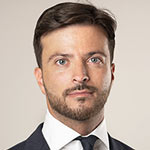 Andrea Carrera
Profesor UNNE
Professor UNNE
Doctor en Economía por la Universidad de Lugano, Suiza (homologado UAM). Máster oficial en Economía por la Universidad Complutense de Madrid. Sus áreas de investigación abarcan la macroeconomía monetaria, la historia monetaria, y las relaciones monetarias internacionales. Andrea ha participado en congresos, estancias de investigación e impartido clases en Europa y en América del Norte. Fuera del ámbito universitario, Andrea ha trabajado en grandes empresas de Italia y de Alemania. Es autor de un libro sobre la teoría del beneficio y los créditos bancarios (Routledge, 2019). Sus nuevos proyectos incluyen un libro para Palgrave Macmillan sobre el sistema de pagos internacionales (con Alvaro Cencini, LSE) y otro para Routledge sobre la historia monetaria de España (con Alberto Pineda Álcantara, KCL).
Andrea Carrera
Profesor UNNE
Professor UNNE
Doctor en Economía por la Universidad de Lugano, Suiza (homologado UAM). Máster oficial en Economía por la Universidad Complutense de Madrid. Sus áreas de investigación abarcan la macroeconomía monetaria, la historia monetaria, y las relaciones monetarias internacionales. Andrea ha participado en congresos, estancias de investigación e impartido clases en Europa y en América del Norte. Fuera del ámbito universitario, Andrea ha trabajado en grandes empresas de Italia y de Alemania. Es autor de un libro sobre la teoría del beneficio y los créditos bancarios (Routledge, 2019). Sus nuevos proyectos incluyen un libro para Palgrave Macmillan sobre el sistema de pagos internacionales (con Alvaro Cencini, LSE) y otro para Routledge sobre la historia monetaria de España (con Alberto Pineda Álcantara, KCL).
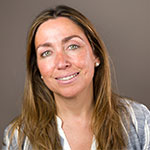 Ana Quintana Jimenez
Profesora UNNE
Professor UNNE
Doctora en Turismo por la Universidad Antonio de Nebrija, licenciada en Derecho por la Universidad de Alcalá, (CEU Luis Vives), y programa experto Derecho Comunitario 1993/1997 Universidad de Alcalá, (CEU Luis Vives), profesora acreditada por ANECA. Experiencia en el ámbito laboral como abogada en ejercicio, (1997), Colegiada en el ICAM Nº 61946, (área de Derecho Civil y Penal), en el ámbito empresarial con experiencia en el sector oleícola, desarrollada en el ámbito de la agricultura ecológica, entre los años 2005 a 2018, habiendo asumido cargos de gestión, como la dirección del Master oficial en Derecho Empresarial, (2007/2009), Coordinación de Doctorado en Turismo, (2007/2015), del Master oficial en Empresas y Mercados Turísticos, (2008/2011) del Master universitario en Turismo: gestión de empresas y destinos turísticos, (2011/2015), del grado en Derecho, (2015/actualidad), y del departamento de Derecho desde septiembre de 2015 hasta septiembre de 2017. Actualmente, compagina su labor investigadora, en el grupo de investigación de Análisis Económico del Sistema Turístico, desde 2010, estando las principales líneas de investigación ligadas al Derecho del Turismo, y al área de Seguridad, habiendo desarrollado su tesis doctoral dentro del ámbito de la legislación turística, tesis doctoral , “Análisis normativo del aprovechamiento por turnos de bienes de uso turístico como solución al problema de la estacionalidad y su incidencia en el mercado turístico, junto con la labor de gestión, como directora del Grado en Derecho, y como profesora de Derecho Romano, Fundamentos de Derecho Civil, del grado en Derecho, del grado en Seguridad, y de Legislación turística en el grado en Turismo en la misma universidad.
Ana Quintana Jimenez
Profesora UNNE
Professor UNNE
Doctora en Turismo por la Universidad Antonio de Nebrija, licenciada en Derecho por la Universidad de Alcalá, (CEU Luis Vives), y programa experto Derecho Comunitario 1993/1997 Universidad de Alcalá, (CEU Luis Vives), profesora acreditada por ANECA. Experiencia en el ámbito laboral como abogada en ejercicio, (1997), Colegiada en el ICAM Nº 61946, (área de Derecho Civil y Penal), en el ámbito empresarial con experiencia en el sector oleícola, desarrollada en el ámbito de la agricultura ecológica, entre los años 2005 a 2018, habiendo asumido cargos de gestión, como la dirección del Master oficial en Derecho Empresarial, (2007/2009), Coordinación de Doctorado en Turismo, (2007/2015), del Master oficial en Empresas y Mercados Turísticos, (2008/2011) del Master universitario en Turismo: gestión de empresas y destinos turísticos, (2011/2015), del grado en Derecho, (2015/actualidad), y del departamento de Derecho desde septiembre de 2015 hasta septiembre de 2017. Actualmente, compagina su labor investigadora, en el grupo de investigación de Análisis Económico del Sistema Turístico, desde 2010, estando las principales líneas de investigación ligadas al Derecho del Turismo, y al área de Seguridad, habiendo desarrollado su tesis doctoral dentro del ámbito de la legislación turística, tesis doctoral , “Análisis normativo del aprovechamiento por turnos de bienes de uso turístico como solución al problema de la estacionalidad y su incidencia en el mercado turístico, junto con la labor de gestión, como directora del Grado en Derecho, y como profesora de Derecho Romano, Fundamentos de Derecho Civil, del grado en Derecho, del grado en Seguridad, y de Legislación turística en el grado en Turismo en la misma universidad.
 María del Mar Rodríguez Santamaría
Profesora
Professor
Doctora en Periodismo por la Universidad Complutense de Madrid, en cuya Facultad de Ciencias de la Información cursó estudios de licenciatura. Máster en Relaciones Internacionales (Escuela Diplomática de Madrid-UCM), Máster en Estudios Estratégicos (Escuela de Defensa Nacional-UCM) y con programas de doctorado en Estudios Europeos y en Problemas Contemporáneos de la Sociedad de la Información (Instituto Universitario Ortega y Gasset. UCM). Comenzó su actividad profesional como redactora en el diario ABC. Ha trabajado como reportera para los diarios La Razón y La Vanguardia, y para TVE. Es colaboradora habitual de los diarios El Mundo y Expansión, donde escribe sobre viajes y hoteles, así como de otras cabeceras nacionales e internacionales (Conde Nast Traveler, Travesías, Destinations of the World, entre otras). Responsable de la crítica hotelera semanal del suplemento Fuera de Serie (Expansión). Visita una media de 50 hoteles al año, asiste a los principales congresos y ferias del sector (ILTM, Pure, Traveler Made, WTM, etc.), realiza entrevistas a los principales actores del mundo de la hospitalidad. Como periodista de viajes, ha visitado cerca de 60 países. Imparte docencia de grado y postgrado en diferentes universidades en España, en materias relacionadas con el turismo, la hospitalidad, el lujo y la comunicación. Ha sido formadora interna para empresas de referencia en el sector (Viajes El Corte Inglés, Melia Hotels International). Ha escrito libros, artículos y desarrollado contenido de comunicación interna y externa por encargo de Banco Santander, Fundación Teatro Real, Real Fundación de Toledo, SLH, Ogilvy, Instituto de Empresa, entre otros. Durante siete años fue responsable de la Unidad de Discursos del Ministerio de Defensa del Gobierno de España. Posee acreditación lingüística para impartir docencia en inglés. A lo largo de su carrera profesional, ha recibido diferentes galardones por sus trabajos periodísticos.
María del Mar Rodríguez Santamaría
Profesora
Professor
Doctora en Periodismo por la Universidad Complutense de Madrid, en cuya Facultad de Ciencias de la Información cursó estudios de licenciatura. Máster en Relaciones Internacionales (Escuela Diplomática de Madrid-UCM), Máster en Estudios Estratégicos (Escuela de Defensa Nacional-UCM) y con programas de doctorado en Estudios Europeos y en Problemas Contemporáneos de la Sociedad de la Información (Instituto Universitario Ortega y Gasset. UCM). Comenzó su actividad profesional como redactora en el diario ABC. Ha trabajado como reportera para los diarios La Razón y La Vanguardia, y para TVE. Es colaboradora habitual de los diarios El Mundo y Expansión, donde escribe sobre viajes y hoteles, así como de otras cabeceras nacionales e internacionales (Conde Nast Traveler, Travesías, Destinations of the World, entre otras). Responsable de la crítica hotelera semanal del suplemento Fuera de Serie (Expansión). Visita una media de 50 hoteles al año, asiste a los principales congresos y ferias del sector (ILTM, Pure, Traveler Made, WTM, etc.), realiza entrevistas a los principales actores del mundo de la hospitalidad. Como periodista de viajes, ha visitado cerca de 60 países. Imparte docencia de grado y postgrado en diferentes universidades en España, en materias relacionadas con el turismo, la hospitalidad, el lujo y la comunicación. Ha sido formadora interna para empresas de referencia en el sector (Viajes El Corte Inglés, Melia Hotels International). Ha escrito libros, artículos y desarrollado contenido de comunicación interna y externa por encargo de Banco Santander, Fundación Teatro Real, Real Fundación de Toledo, SLH, Ogilvy, Instituto de Empresa, entre otros. Durante siete años fue responsable de la Unidad de Discursos del Ministerio de Defensa del Gobierno de España. Posee acreditación lingüística para impartir docencia en inglés. A lo largo de su carrera profesional, ha recibido diferentes galardones por sus trabajos periodísticos.
 Jaime Juan González Masip
Profesor
Professor
Doctor en Dirección de Empresas por la Universidad Complutense de Madrid. Máster en Investigación en Dirección de Empresas, Marketing y Contabilidad por la Universidad Complutense de Madrid. Licenciado en Investigación de Mercados (Marketing) por la Universidad Autónoma de Madrid. Profesor del área de Turismo desde el año 2012, impartiendo materias como Gestión de Turoperadores y Agencias de Viajes, Gestión de la Calidad Turística, Gestión de Eventos Turísticos, Gestión Sostenible de Destinos Turísticos, Marketing Digital y Turismo 2.0, y Economías Colaborativas en el Sector Turístico. Ha participado en diversos congresos académicos con comunicaciones específicas del Sector Turístico. Acumula más de diez años de experiencia profesional en puestos directivos con responsabilidades, entre otras, sobre Marketing y Ventas.
Jaime Juan González Masip
Profesor
Professor
Doctor en Dirección de Empresas por la Universidad Complutense de Madrid. Máster en Investigación en Dirección de Empresas, Marketing y Contabilidad por la Universidad Complutense de Madrid. Licenciado en Investigación de Mercados (Marketing) por la Universidad Autónoma de Madrid. Profesor del área de Turismo desde el año 2012, impartiendo materias como Gestión de Turoperadores y Agencias de Viajes, Gestión de la Calidad Turística, Gestión de Eventos Turísticos, Gestión Sostenible de Destinos Turísticos, Marketing Digital y Turismo 2.0, y Economías Colaborativas en el Sector Turístico. Ha participado en diversos congresos académicos con comunicaciones específicas del Sector Turístico. Acumula más de diez años de experiencia profesional en puestos directivos con responsabilidades, entre otras, sobre Marketing y Ventas.
 Jorge Colvin Díez
Profesor
Professor
Doctor en Administración y Dirección de Empresas por la Universidad Antonio de Nebrija. Diplomado en Dirección de Empresas (PDD) por el IESE (Universidad de Navarra). Master en Bolsa y Mercados Financieros por el IEB (Instituto de Estudios Bursátiles). En su vertiente académica, además de ser profesor de la Universidad de Nebrija en Dirección Financiera, Contabilidad Financiera y Diseño y Gestión de Planes de Negocio, actualmente es profesor del área de Finanzas y Contabilidad en la Universidad americana Schiller International University (SIU), en la Universidad Francisco de Vitoria y en Centro Universitario de Villanueva. En su faceta como investigador, ha desarrollado tanto diversas colaboraciones académicas con el IESE como publicaciones en revistas científicas indexadas. Cuenta con más de 15 años de experiencia profesional en empresas líderes en su sector como PricewaterhouseCoopers, KPMG y Grupo Codere, siendo está última en la que fue responsable de fusiones y adquisiciones para España y miembro de Gabinete de Presidencia. Actualmente es business angel en el IESE y asesor de Presidencia a empresas multinacionales españolas así como de varios bancos de inversión en operaciones de fusiones y adquisiciones.
Jorge Colvin Díez
Profesor
Professor
Doctor en Administración y Dirección de Empresas por la Universidad Antonio de Nebrija. Diplomado en Dirección de Empresas (PDD) por el IESE (Universidad de Navarra). Master en Bolsa y Mercados Financieros por el IEB (Instituto de Estudios Bursátiles). En su vertiente académica, además de ser profesor de la Universidad de Nebrija en Dirección Financiera, Contabilidad Financiera y Diseño y Gestión de Planes de Negocio, actualmente es profesor del área de Finanzas y Contabilidad en la Universidad americana Schiller International University (SIU), en la Universidad Francisco de Vitoria y en Centro Universitario de Villanueva. En su faceta como investigador, ha desarrollado tanto diversas colaboraciones académicas con el IESE como publicaciones en revistas científicas indexadas. Cuenta con más de 15 años de experiencia profesional en empresas líderes en su sector como PricewaterhouseCoopers, KPMG y Grupo Codere, siendo está última en la que fue responsable de fusiones y adquisiciones para España y miembro de Gabinete de Presidencia. Actualmente es business angel en el IESE y asesor de Presidencia a empresas multinacionales españolas así como de varios bancos de inversión en operaciones de fusiones y adquisiciones.
 Lorenzo Vilariño López-Barranco
Profesor
Professor
Postgrado en Gerencia y Dirección Hotelera por la universidad Politécnica de Madrid. Diplomado en Empresas y actividades Turísticas por la Escuela Superior de Turismo Sol. Comencé en diversos puestos de recepción hasta llegar a Jefe de Recepción y Revenue Manager en 3 hoteles de Madrid, dando el salto a la dirección hotelera de dos hoteles en Madrid y Guadalajara. Durante mi trayectoria he participado en la apertura de dos hoteles en Madrid.
Lorenzo Vilariño López-Barranco
Profesor
Professor
Postgrado en Gerencia y Dirección Hotelera por la universidad Politécnica de Madrid. Diplomado en Empresas y actividades Turísticas por la Escuela Superior de Turismo Sol. Comencé en diversos puestos de recepción hasta llegar a Jefe de Recepción y Revenue Manager en 3 hoteles de Madrid, dando el salto a la dirección hotelera de dos hoteles en Madrid y Guadalajara. Durante mi trayectoria he participado en la apertura de dos hoteles en Madrid.
More Academic Information
Skills
Basic Skills- Possess and understand knowledge that provides a basis or opportunity to be original in the development and/or application of ideas, often in a research context.
- That the students know how to apply the acquired knowledge and their ability to solve problems in new or little-known environments within broader (or multidisciplinary) contexts related to their area of study.
- That students are able to integrate knowledge and face the complexity of making judgments based on information that, being incomplete or limited, includes reflections on social and ethical responsibilities linked to the application of their knowledge and judgments.
- That students know how to communicate their conclusions and the ultimate knowledge and reasons that support them to specialized and non-specialized audiences in a clear and unambiguous way.
- That students possess the learning skills that allow them to continue studying in a way that will be largely self-directed or autonomous.
- Be able to communicate correctly, both orally and in writing, in the field of tourism.
- Develop the ability to act autonomously in the planning and implementation of tourism projects, in a multicultural and multidisciplinary context, in the field of tourism.
- Be able to use and synthesize the different sources of information to obtain scientific results and apply them in the field of tourism.
- Know and apply the knowledge acquired in solving problems in new environments, taking risks and applying a critical judgment in the field of tourism.
- Be able to plan and develop complex tasks, prioritizing appropriate decision making and its adaptability to different contexts in the field of tourism.
- It is considered that at the end of the program the students of the Master's Degree in Tourism Companies and Destinations (DETUR) will have acquired the following Specific Competences directly related to the tourism field.
- Acquire the advanced knowledge necessary to analyze the tourism offer from an economic perspective, on a national and international level.
- Be able to implement and manage social responsibility policies in tourism destinations and companies, integrating the economic dimension with the social and environmental one.
- Integrate into the organization of the company and tourist destinations the values and policies of effective equality, especially between women and men, and attention to disability.
- Be able to evaluate and propose improvements in commercial distribution processes in order to choose innovative strategies for the positioning of tourism products and services.
- Choose and interpret short-term policies within the framework of tourism businesses, based on changes in the environment and be able to measure their consequences.
- Diagnose situations of change in tourism markets and in tourist demand behaviors in variable chronological contexts
- Be able to identify and implement innovation opportunities in different areas of tourism.
- Know how to interpret the principles of sustainable management to develop improvement actions in companies and tourist destinations.
- Analyze the new trends, prospects and dynamics of international tourism markets
- Be able to design and propose the bases to implement technological solutions applied to tourism.
- Apply the knowledge acquired in the Master's degree to perform a job in the area of tourism at the sectoral or territorial level.
- Know the fundamentals and apply appropriate scientific methodologies in the management processes of tourist destinations
- Master analytical strategies developed from the usual research methods for decision making
- Manage techniques for collecting and analyzing high volumes of data.
- Know the methods and techniques for the preparation and presentation of the Master's Final Project.
Online Studies
Metodology
The teaching-learning methodology follows the case method. Continuous evaluation and personalized attention are two of the fundamental characteristics of this Master's degree. In the online mode, the Blackboard learning platform is used. The professors are active professionals and doctors, with small groups, which guarantees the quality of the education received.
Admissions
Access and admission
Access
As established in Article 16 of RD 1393/2007, modified by RD 861/2010, students who meet any of the following conditions may access these studies:
- Have an official Spanish university degree or other degree issued by an institution of higher education of the European Higher Education Area that grants access to Master's studies in the country issuing said degree and that fits the established admission profile to access this degree.
- Graduates of educational systems outside the European Higher Education Area may access without the need for validation of their degrees, after verification by the University that they can accredit a level of studies equivalent to the corresponding official Spanish university degrees and that these grant access to postgraduate education in the country issuing said degree. Access through this route will not imply, in any case, the homologation of the previous degree of the interested party, nor its recognition for other purposes than that of taking the Master's degree. In the cases in which the validation of any degree, diploma or study obtained abroad is necessary to access the University, the Antonio de Nebrija University may conditionally admit students who accredit having submitted the corresponding application for validation while the approval procedure is resolved.
- In the case of students with special educational needs derived from disability, the need for possible curricular adaptations, itineraries or alternative studies will be assessed.
How to submit documentation necessary for admission.
In general, the admission documentation will be submitted to the Admissions Department.
The student must provide the originals or certified copies of the submitted documentation, within a period established by the University, in order to formalize his/her enrollment. Any inaccuracy, falsity or omission of information, statement or document provided by the student in the admission period will entail the impossibility of continuing to exercise the right from the moment the University has proof of these events, and proceed to cancel the application for admission submitted and the place awarded, notwithstanding any criminal, civil or administrative responsibilities that may arise.
In order to access the official master's degrees, it is necessary to submit the following documentation:
- Completed admission application.
- Identification document (D.N.I) or valid passport.
- 1 passport-size photograph.
- Academic Record with the grades of the studies that grant access to the Master's degree.
- Photocopy of Spanish university diploma or receipt of having requested it.
-
Foreign students:
- Certified photocopy of official diploma issued by a foreign higher education institution belonging to the European Higher Education Area (EHEA) that grants access, in the issuing country, to official master's degree studies.
- Certified photocopy of official diploma issued in a foreign educational system not belonging to the EHEA. In this case, access will be conditioned by the verification that the studies completed correspond to a level of studies equivalent to that of the official Spanish university degrees and that they grant access to the official master's degrees in the country in which the diploma was issued. This procedure does not imply, in any case, the homologation of the previous degree, nor its recognition for any purpose other than to access the master's studies.
- Only if necessary, the foreign student will be asked for a letter issued by the University in which he/she has completed the degree that grants access to Master's studies in the country issuing the diploma.
In the event that the studies granting access to the pre-registration of the Master's degree are completed in a Foreign Higher Education institution, both the diploma and the academic record (grades) must be official and issued by the competent authorities, in accordance with the legal system of the country of origin.
If the number of applicants exceeds the number of places offered, the student's academic record (average grade) will be taken as an admission criterion.
Therefore, anyone interested in accessing the Master's degree studies in Tourism Business and Destinations must submit, without exception, their academic record, since it will be the average grade therein that decides their admission to the Master's degree, in the event that the number of applications exceed the number of places offered.
Once the places are full, if there are more students interested in accessing the program, they will be put on the waiting list for any possible vacancies that may arise before the start of the academic year, applying the admission and selection criteria detailed in point 4 for the rest of applicants.
Students must take the following tests, which are part of the admission process.
Foreign language or Spanish language placement test: 10%
In order to know the students' real level of knowledge of the foreign language, the Institute of Modern Languages conducts a language placement test. The placement tests consist of a written exam with multiple-choice questions, oral and written comprehension, and use of the language. They are taken in person or online.
It will not be necessary for the candidate to take the language placement test if he/she submits a certificate that accredits his/her minimum knowledge of the Spanish language is at a B2 level of the CEFR. The level accreditation will be validated through the official diplomas admitted by the table of certificates accepted by ACLES and/or Instituto Cervantes. Valid for one year.
Likewise, if the student wants to take the degree in English, he/she must prove at least having a B2 level of the CEFR or take the aforementioned test.
2.- Personal interview: 30%
Carried out by the Director of the Program or by University advisers, this interview is aimed at verifying the candidate's suitability and his/her profile in relation to the degree. This is done to determine if the candidate has sufficient motivation, training and knowledge, abilities, aptitudes, communication skills, extracurricular activities and future interests necessary to be admitted as a student in the Nebrija University postgraduate programs.
3.- Academic record: 60%
SThe average grade of the academic record of the students interested in accessing the Master's degree in Tourism Business and Destinations will be taken into account.
The weighting of the criteria used is as follows:
- Foreign language or Spanish language placement test: 10%
- Personal interview: 30%
- Academic record: 60%
- Total: 100%
Once the student has been admitted, they will proceed to enroll, which consists of the following phases:
Place reservation
Candidates must reserve their place. This economic pre-enrollment guarantees the candidate's place at the University. These annual enrollment fees will not be returned except for students who are conditionally admitted, or do not fulfill the legal requirements for admission, or with a justifiable medical situation.
Enrollment
Pre-enrolled candidates who wish to formalize their academic enrollment at the University must follow these steps:
- 1.- Submit documentation: certify that he/she meets the requirements established by Spanish university legislation for admission to the Master's degree.
- 2.- Formalize the enrollment process online: The self-enrollment service on the Nebrija website allows admitted students to carry out all academic, financial and administrative procedures within the established deadlines. To do this, they will receive, along with their admission letter, the access code and personal password necessary to be able to carry out their self-enrollment. Once the self-enrollment is formalized, the candidate acquires the status of a student at Nebrija University.
- 3.- Make the payment for annual enrollment, according to the modality chosen by the student.
Employability
Career Opportunities
In addition, through this postgraduate training, students acquire skills to:
Internships
The Master is a program designed with the support of an Advisory Council that incorporates the main organizations in the sector, such as Telefónica, Iberia and the Instituto Tecnológico Hotelero, among others. In addition to having the support of institutions such as the World Tourism Organization (UNWTO) and SEGITTUR. On the other hand, the Department of Tourism actively participates in the Spanish Tourism Board and has a Research Group on Tourism Intelligence, which supports the knowledge of the real situation of the sector.






Testimonials
Activities in Tourism Companies and Destinations
Visit all the Activities of the School of Economics and Business
The benefit of technology for Tourism
Interview with Natalia Bayona, Director of Innovation, Education and Investments at World Tourism Organization (UNWTO), where she analyzes the importance of the application of technological solutions in tourism in order to help reach more people, improve the customer experience and continue to be the largest employer of youth and women in the world. She also highlights the role of education in empowering young people to be actors of change towards a more sustainable, more modern and more innovative system.
Nebrija Tourism Week
Collaborative Economy was the central theme at the Tourism Week held at the Nebrija University's Madrid-Princesa Campus, in which experts from the sector took part.




